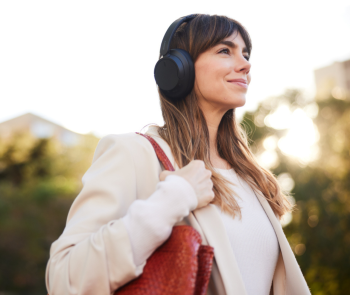
April is Autism Awareness Month, a time for recognizing and understanding the experiences of autistic individuals. Many autistic people have heightened or different sensory needs, meaning they may be over-sensitive or under-sensitive to certain stimuli. However, sensory needs aren’t exclusive to autism. People with other neurodivergencies and even neurotypical individuals can benefit from sensory tools and accommodations! Here are some ways to prevent overstimulation and help regulate your sensory experience.
Noise-Canceling Headphones
Noise is a major stressor for many people. Whether it’s loud coworkers, apartment neighbors, or the overwhelming sounds of a grocery store, noise-canceling headphones can significantly reduce unwanted sensory input and help you focus or relax.
Fidgets
Fidget tools aren’t just for kids, there are many types available for different needs. If you find yourself picking at your nails or skin, a fidget ring or spinner can provide a safer alternative. If you need something to squeeze, stress balls or therapy putty can help release tension. Textured fidgets, like silicone poppers or fabric swatches, can also offer grounding sensations.
Body Movement
Movement can be a great way to regulate your nervous system. If you feel restless, try stretching, rocking, or engaging in deep-pressure activities like using a weighted blanket or wearing compression clothing. If you work at a desk, a balance cushion or under-the-desk foot rocker can help with subtle movement while you sit.
Adjusting Lighting and Environment
Harsh fluorescent lights can be overwhelming. If possible, use softer lighting options like warm LED bulbs, lamps, or natural light. Blue-light glasses can also help reduce eye strain from screens. Additionally, creating a cozy sensory-friendly space with soft blankets, calming scents, or white noise machines can make a big difference in your daily comfort.

Accommodating your sensory needs doesn’t have to be complicated. Small adjustments like noise-canceling headphones, fidgets, movement, and lighting changes can make daily life more comfortable and enjoyable. Whether you’re autistic, neurodivergent, or just someone looking to improve your sensory experience, these simple tools can help create a more regulated and stress-free environment. If you or someone you know could use extra support, The Village has experienced clinicians ready to help, many of which specialize in autism and ADHD. No matter your age or background, counseling services provide valuable coping strategies that can improve your daily life!